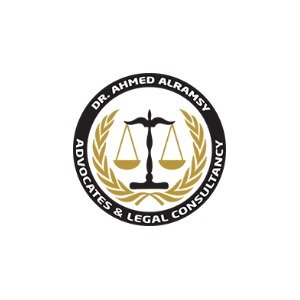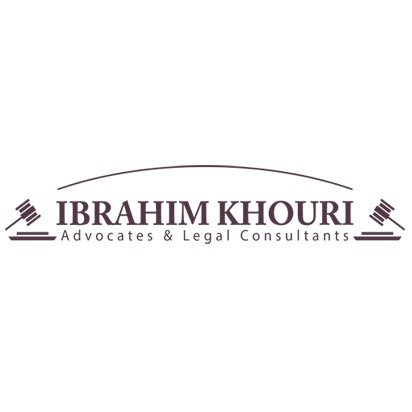Best Conveyancing Lawyers in Abu Dhabi
Share your needs with us, get contacted by law firms.
Free. Takes 2 min.
Free Guide to Hiring a Real Estate Lawyer
List of the best lawyers in Abu Dhabi, United Arab Emirates
About Conveyancing Law in Abu Dhabi, United Arab Emirates
Conveyancing refers to the legal process of transferring property ownership from one party to another. In Abu Dhabi, United Arab Emirates, conveyancing covers the sale, purchase, lease, or mortgage of real estate. The process involves preparing and verifying documents, ensuring compliance with local property laws, and registering transactions with the relevant authorities. The legal framework for conveyancing in Abu Dhabi is built around protecting the interests of both buyers and sellers, ensuring that all transactions are clear, secure, and recognized by government entities.
Why You May Need a Lawyer
Engaging a lawyer for conveyancing in Abu Dhabi can help you navigate the complexities of local property laws. Here are common situations where legal help may be required:
- Buying or selling property as a resident or non-resident
- Clarifying property ownership and title status
- Drafting or reviewing sale and purchase agreements
- Dealing with mortgages, loans, or financing documentation
- Transferring property due to inheritance or family matters
- Resolving disputes between buyers, sellers, or developers
- Ensuring compliance with foreign ownership regulations
- Registering real estate with the Abu Dhabi Department of Municipalities and Transport
A lawyer can help protect your interests, conduct due diligence, and ensure all legal requirements are satisfied for a successful transaction.
Local Laws Overview
Conveyancing in Abu Dhabi is governed by a range of federal and local laws. Key aspects include:
- Ownership Restrictions: Non-UAE nationals are allowed to own property in designated investment zones. Outside these zones, foreigners may only have leasehold rights.
- Registration Requirements: All property transactions must be registered with the Abu Dhabi Department of Municipalities and Transport. Registration ensures legal recognition and protects your title.
- Title Verification: Conducting a thorough check of the property title is mandatory to identify any encumbrances, liens, or disputes.
- Contract Requirements: Sale and purchase agreements must meet specific legal standards and typically need to be notarized.
- Developer Off-Plan Purchases: Buying off-plan property requires extra diligence on payment schedules, project completion guarantees, and registration of pre-completion sales.
- Transfer Fees and Taxes: The parties must pay transfer fees based on the market value of the property. There is no capital gains tax or stamp duty, but various administrative fees apply.
- Mortgage Registration: Any mortgage must be officially registered, and the property will remain collateral until the mortgage is paid off.
Understanding these laws is crucial to avoid complications or legal disputes.
Frequently Asked Questions
What is the typical process for buying property in Abu Dhabi?
The process includes selecting a property, signing a memorandum of understanding, conducting due diligence, obtaining necessary approvals, signing the sale and purchase agreement, and finally registering the transfer with the Department of Municipalities and Transport.
Can foreigners purchase property in Abu Dhabi?
Yes, non-UAE nationals can buy properties within designated investment zones, often on a freehold or leasehold basis. Outside these areas, restrictions apply.
What documents are required for conveyancing?
Generally, you need identification documents, title deed, NOC from the developer, proof of payment or mortgage documents, and signed contracts. Your lawyer will advise on the full required list.
How are property disputes resolved?
Most disputes can be settled through negotiation or mediation. If unresolved, parties may approach the Abu Dhabi courts or the relevant real estate regulatory authority.
Are there fees involved in property transfer?
Yes, transfer fees, administrative charges, and sometimes agent commissions apply. Fees typically range around 2 percent of the property value but can vary.
How does mortgage registration work?
Mortgage registration must be performed at the Department of Municipalities and Transport. Your mortgage provider and legal advisor will guide you through the required documentation and procedures.
Is it necessary to register off-plan property purchases?
Yes, off-plan purchases should be registered to protect your rights and ensure legal recognition of your investment.
What protections exist for buyers of new developments?
Buyers are protected by escrow accounts for payments and project registration requirements that provide some oversight of developers, but it is still important to conduct due diligence and seek legal advice.
Can I authorize someone to act on my behalf?
Yes, you may grant power of attorney to a trusted representative or lawyer to handle the conveyancing process on your behalf.
How long does the conveyancing process typically take?
Timeframes vary depending on the complexity of the transaction and responsiveness of all involved parties, but a standard property transfer can take from a few weeks to a couple of months.
Additional Resources
For more guidance and assistance, the following entities and resources are available:
- Abu Dhabi Department of Municipalities and Transport (Property Registration Office)
- Abu Dhabi Judicial Department (for property dispute resolution)
- Abu Dhabi Real Estate Regulatory Authority
- Accredited law firms specializing in property and real estate law
- Legal information from the UAE Ministry of Justice
These bodies provide up-to-date regulations, application forms, and guidance for property transactions within Abu Dhabi.
Next Steps
If you require legal assistance with conveyancing in Abu Dhabi, consider the following steps:
- Consult with a qualified property lawyer familiar with Abu Dhabi regulations
- Prepare all the necessary documentation and identification required for your transaction
- Request a detailed explanation of the conveyancing process, associated costs, and timelines
- Ensure that all agreements and contracts are reviewed by your lawyer before signing
- Follow up with the Department of Municipalities and Transport for registration updates or inquiries
Legal advice is invaluable in protecting your investment and ensuring a smooth property transaction. Taking the right steps early on can help prevent delays and avoidable issues.
Lawzana helps you find the best lawyers and law firms in Abu Dhabi through a curated and pre-screened list of qualified legal professionals. Our platform offers rankings and detailed profiles of attorneys and law firms, allowing you to compare based on practice areas, including Conveyancing, experience, and client feedback.
Each profile includes a description of the firm's areas of practice, client reviews, team members and partners, year of establishment, spoken languages, office locations, contact information, social media presence, and any published articles or resources. Most firms on our platform speak English and are experienced in both local and international legal matters.
Get a quote from top-rated law firms in Abu Dhabi, United Arab Emirates — quickly, securely, and without unnecessary hassle.
Disclaimer:
The information provided on this page is for general informational purposes only and does not constitute legal advice. While we strive to ensure the accuracy and relevance of the content, legal information may change over time, and interpretations of the law can vary. You should always consult with a qualified legal professional for advice specific to your situation.
We disclaim all liability for actions taken or not taken based on the content of this page. If you believe any information is incorrect or outdated, please contact us, and we will review and update it where appropriate.

















